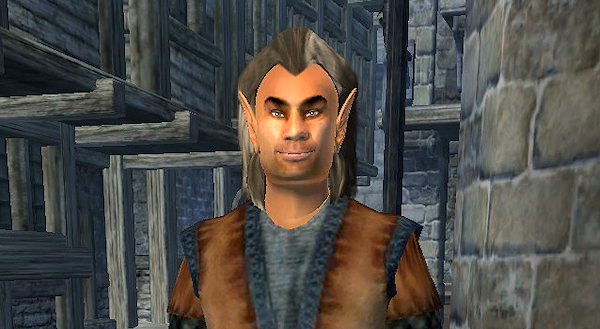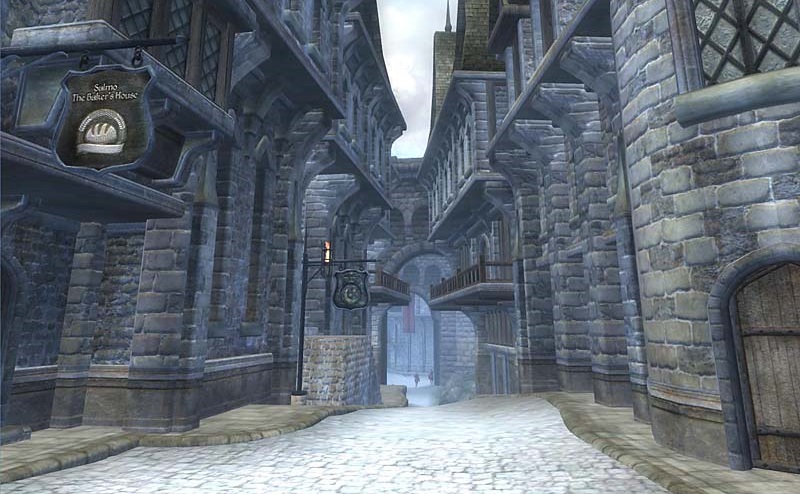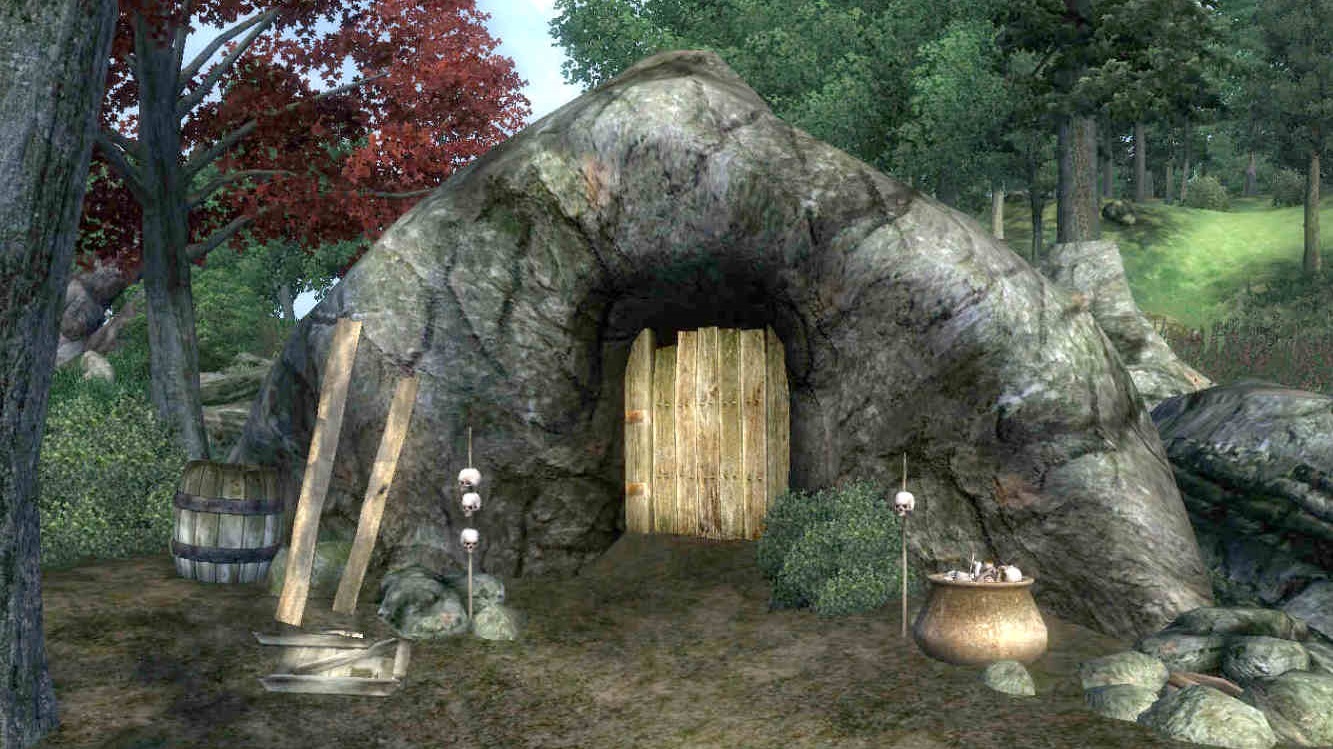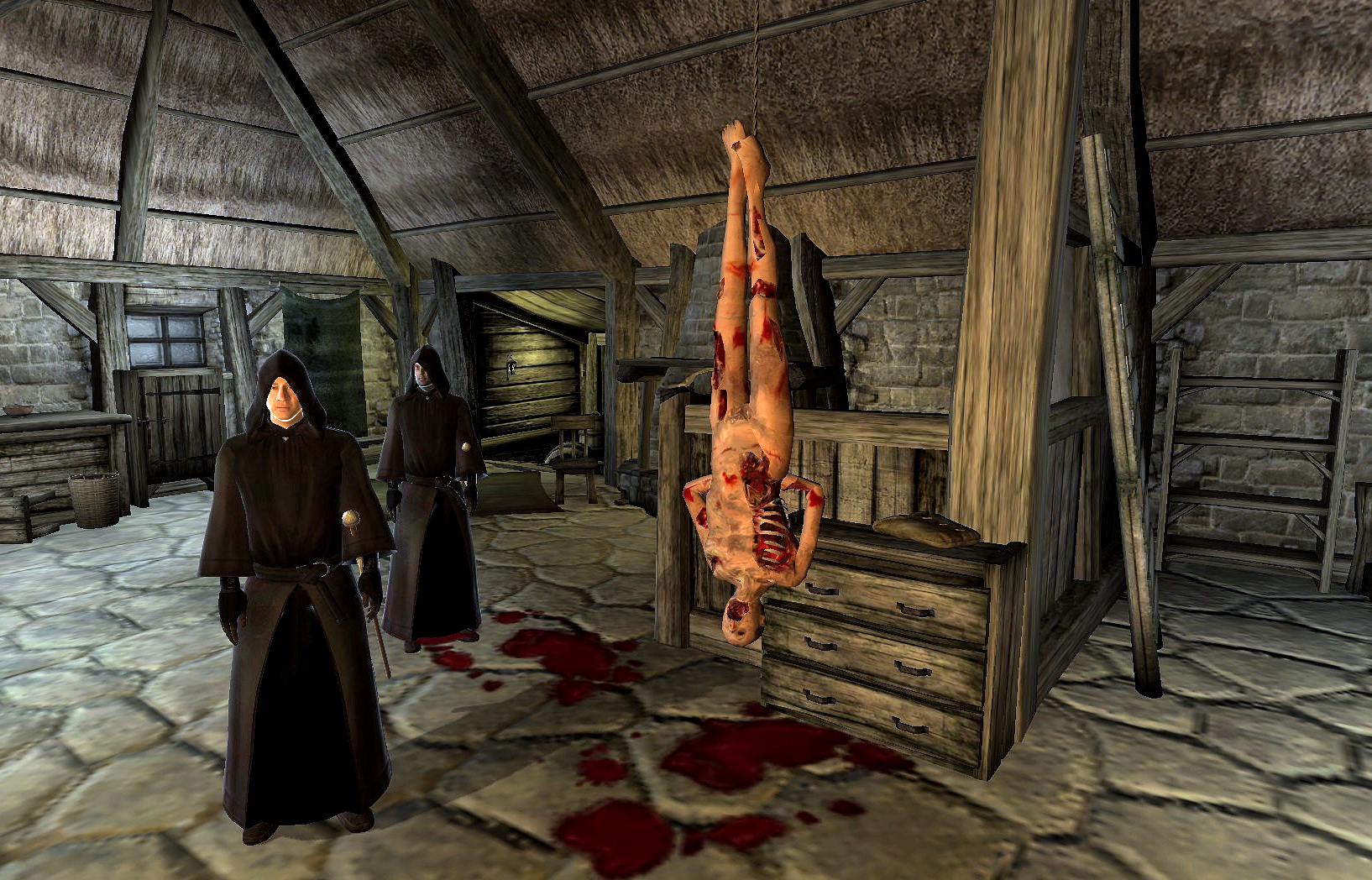Paranoia in The Elder Scrolls IV: Oblivion

The Elder Scrolls IV: Oblivion is 10 years old, a terrifying fact that has done little but remind me that my days are numbered and senility is closing in on me like a determined mud crab. But for all that time may cloud my mind, I will never forget the quest that defined my experience of Bethesda's finest game and enshrined the RPG as the genre for me.
Paranoia requires you to exploit almost every mechanic Oblivion offers—combat, dialogue, timing, stealth and theft—resolving the story of a mad wood elf. Glarthir is convinced his neighbours are in cahoots, plotting his downfall. You can choose to take his side and keep tabs on the people of Skingrad, or you can brush him off as a total Fruit Loop. For me, a PC gaming novice at the time, this tangle of possibilities went horribly wrong.

A little scene-setting: the PC I was running Oblivion on was my very first. Consequently, I hadn't had much experience with games more complex than Pokémon or World of Warcraft, which just about ran on my parents' early-'00s monstrosity. I didn't have a full understanding of what was and wasn't possible in a PC RPG, and that made the world feel far more scary.
When you enter Skingrad, Glarthir is programmed to run towards you and engage you in conversation, triggering Paranoia. I just saw a demented elf running my way and panicked—I turned on my heel and left the city. To my horror, as I caught my breath beyond the Skingrad loading screen, what should I see emerge but the same figure who had just tried to accost me. Assuming in my heightened state that Oblivion had marked me for death, I legged it across country, looking back every few seconds to glimpse the relentless silhouette of my pursuer.

As the chase wore on, I became hysterical, at last taking shelter in Goblin Jim's Cave (I hope you'll understand the depth of my fear in the knowledge that I was more prepared to face Goblin Jim than the abomination dogging my footsteps). I hopped onto a ledge opposite the cave entrace, crouched down and drew my bowstring. Minutes passed in horrible tension, and then a figure appeared. He was unstoppable!
The string went slack; the arrow flew true. Glarthir keeled over. In my panic, I had killed an overzealous quest giver—but of course I didn't know that's what he was. Neither could I understand the message now blazing on my screen beyond a nauseating sensation that it wasn't good news.
"Your killing has been observed by forces unknown..."
Keep up to date with the most important stories and the best deals, as picked by the PC Gamer team.

Needless to say, when the Dark Brotherhood's Lucien Lachance appeared at my bedside the next time I slept, pants were dampened. By the time my heart rate returned to normal and I'd stirred up the gumption to do as Lucien bid, however, I had had a revelation. Somehow a cross-country pursuit and my own misplaced self-defence culminated in my becoming Cyrodiil's most deadly assassin. The bewildering chain of events that set me on that path was testament to Oblivion's complexity, potential and frequent shonkiness.
Oblivion felt impossibly deep, and that sensation of causality among its disparate mechanics—though it was sometimes a product of poor code—sold me on the genre like nothing else could.

